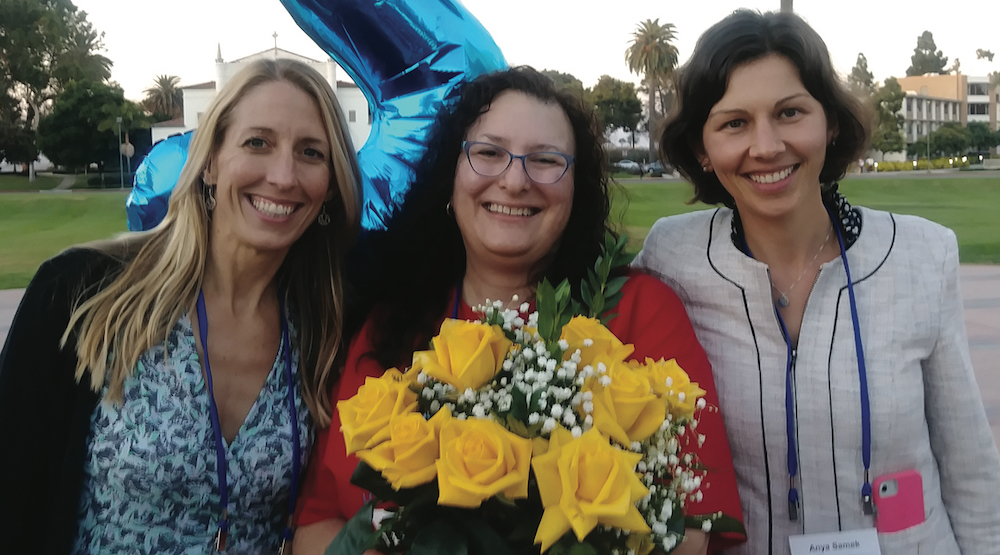
Economists from around the world gathered at Loyola Marymount University Oct. 10-12 for the North American Conference of the Economic Science Association (ESA), which was co-hosted by the LMU Economics Department and USC. The conference attracted faculty members from prestigious institutions such as the California Institute of Technology, Stanford, Columbia, Brown, Pennsylvania, the University of Southern California, Singapore, the University of Calgary, Cornell, New York University, and the Max Planck Institute, among others.
The ESA is a professional organization devoted to economics as an observational science, using controlled experiments to learn about economic behavior. Jennifer Pate, professor of economics and interim associate dean for undergraduate education in the LMU Bellarmine College of Liberal Arts, is responsible for bringing the 2019 ESA North America Conference to Loyola Marymount. She and her co-organizer Anya Samek, associate professor of economics at USC, submitted a proposal to hold the conference in Los Angeles, knowing that it would highlight the important work done by the faculty of the Economics Department, and benefit the University for years to come. “The LMU Economics Department has an expertise in experimental and behavioral research and now we’re hosting some of the most well-known experimental economists in the world,” Professor Pate said. “We are excited to showcase our campus and use this conference as an opportunity to expand our reputation as a strong Economics Department and nationally-ranked university.”
James Konow, a professor of economics at LMU and chair of economics and ethics at Kiel University in Germany, played an important role in the conference, delivering the opening keynote titled “If you’re so smart, why aren’t you ethical? Experimental economics and ethics.” In his presentation, Professor Konow drew upon his research to bridge the gap between economics and ethics, and “underscore[d] a variety of possible benefits from economists acquiring greater knowledge of philosophical ethics, including to their economic analysis, policy recommendations, and professional life.” It is fitting that the first keynote of the conference focused on interdisciplinary connection, given the location of the conference at a Jesuit university.
Professor Konow credits the unique atmosphere of LMU as contributing to the success of his research on ethics and economics: “the University-wide ethics requirement created ideal conditions for studies of the impact of ethics on students, and internal grant support for ethics funded my early experimental investigations of ethics on behavior.” Professor Pate also credits Professor Konow as instrumental in creating the experimental specialization in the Economics Department, and developing its reputation for producing high-quality experimental research.
Fulya Ersoy, Graham Beattie, and Prachi Jain, assistant professors of economics at LMU, gave presentations at the conference, and Professor Jain was also a panel speaker at a workshop held the Sunday after the conference that focused on experiments with children and non-standard populations.
In addition to faculty, LMU students contributed to the success of the conference. Professor Pate praised the team of student volunteers and workers from the Economics Department, who were “essential in helping the conference to run smoothly.” Many economics majors who did not work the conference still attended sessions, where they had the opportunity to network with faculty from neighboring institutions like Caltech, USC, and UCLA. One of the major benefits of holding the conference at LMU was the opportunity for LMU economics majors to engage, and Professor Konow hopes the experience will help LMU students “in their post-graduate endeavors, such as in applications to post-graduate studies.”



